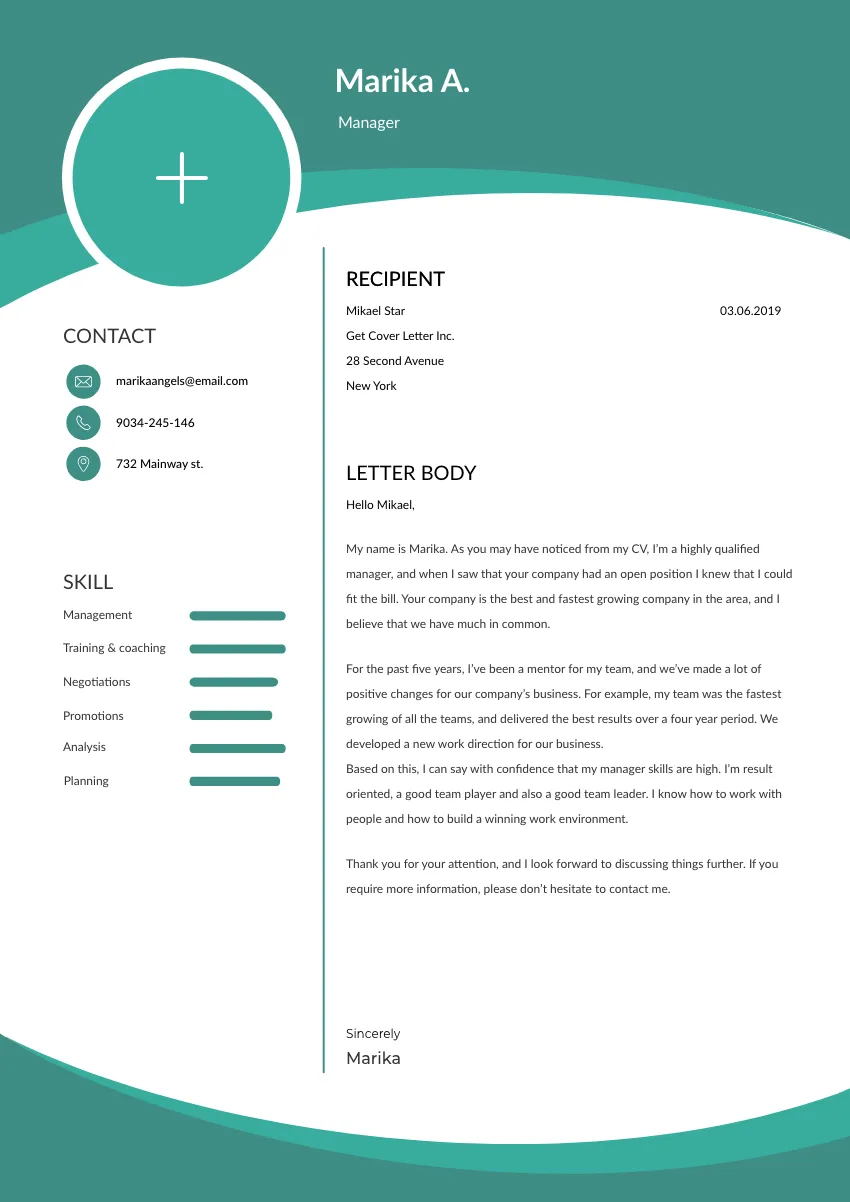Cover Letter Tips for Educators
A well-crafted cover letter is your first chance to make a positive impression on potential employers. For educators, a cover letter isn’t just a formality; it’s an opportunity to showcase your passion for teaching, your qualifications, and your ability to connect with students. This guide provides essential tips to help you write a compelling cover letter that highlights your strengths and increases your chances of landing an interview. By focusing on key areas like qualifications, experience, skills, and tailoring your letter, you can create a document that stands out and effectively represents you as a dedicated and capable educator. Remember, a strong cover letter is a crucial component of your job application, so take the time to make it shine.
Highlighting Your Qualifications
Your qualifications are the foundation of your teaching career, so they deserve prominent placement in your cover letter. Start by clearly stating your relevant degrees, certifications, and any specializations you possess. Be specific about the institutions where you earned your qualifications and the dates of completion. If you have advanced degrees or certifications, such as a Master’s in Education or a specific teaching endorsement, be sure to mention them early on. Also, include any awards, honors, or recognitions you’ve received, as these demonstrate your commitment to excellence. Remember to align your qualifications with the specific requirements of the job you are applying for, emphasizing the aspects that make you a perfect fit for the role.
Showcasing Experience
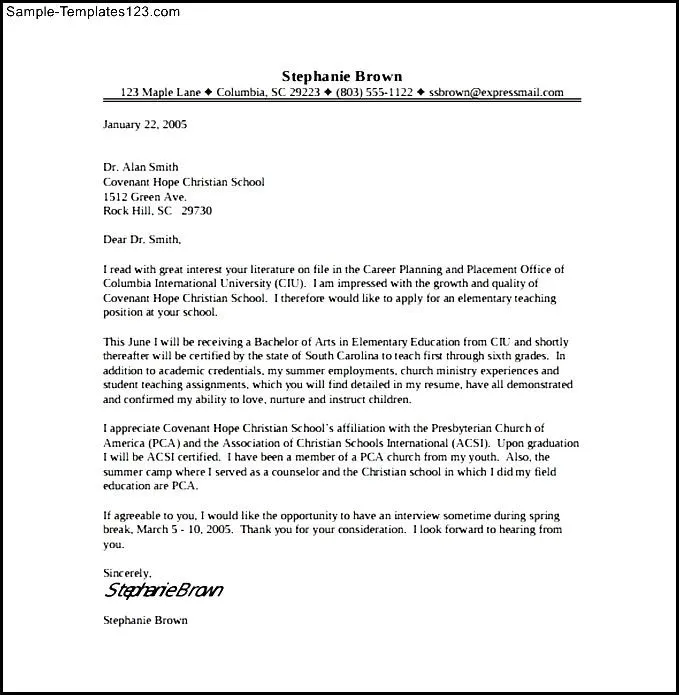
Experience is key to demonstrating your abilities as an educator. Your cover letter should detail your teaching experience, including the grade levels and subjects you’ve taught. Provide specific examples of your classroom roles, responsibilities, and achievements. Quantify your accomplishments whenever possible; for example, mention the percentage increase in student test scores or the number of successful projects you’ve led. Highlight your involvement in extracurricular activities, such as clubs, sports teams, or school events. Also, include details about any mentoring or leadership roles you’ve held. Showcase your experience in a manner that clearly conveys your ability to create a positive and engaging learning environment, emphasizing student success and development. If you have experience working with diverse student populations or using innovative teaching methods, be sure to highlight these as well.
Demonstrating Skills
Your skills are what enable you to put your qualifications and experience into practice effectively. In your cover letter, emphasize skills relevant to teaching, such as classroom management, lesson planning, curriculum development, and student assessment. Mention any technologies or software you’re proficient in, particularly those used in education. Include skills related to communication, both with students and parents, as well as collaboration skills that show your ability to work with colleagues. Highlight any specialized skills, like experience with special education, differentiated instruction, or specific teaching methodologies. Choose skills that align with the job description and the school’s values, demonstrating how you can contribute to their educational goals. Use examples to illustrate how you’ve successfully applied these skills in past teaching roles.
Tailoring Your Cover Letter
Researching the School
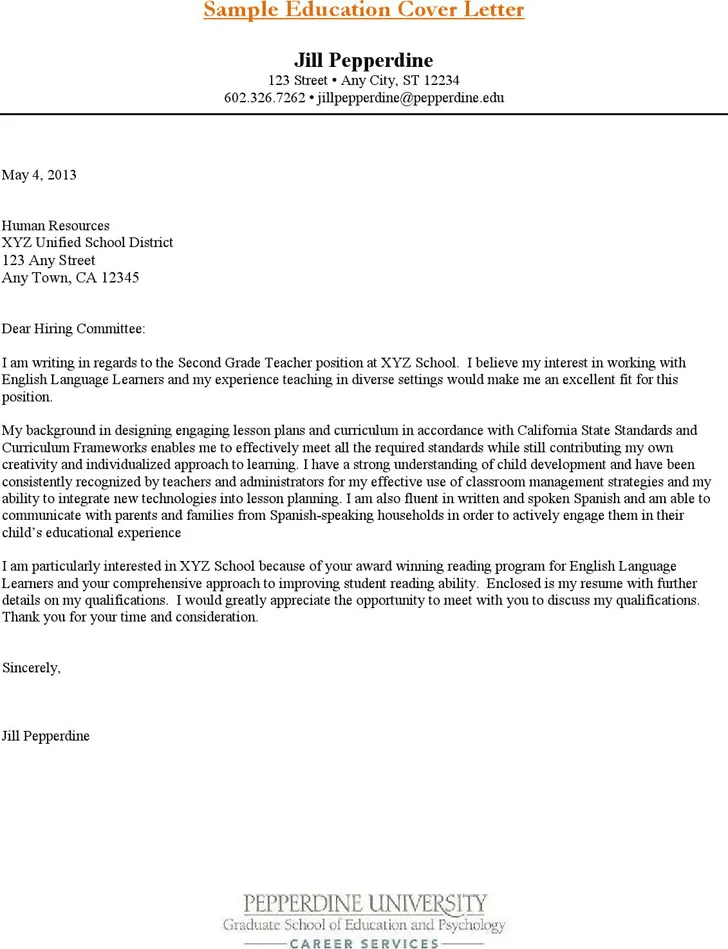
Before you begin writing, thoroughly research the school where you are applying. Visit the school’s website to learn about its mission, values, and teaching philosophy. Understand the school’s demographics, programs, and any special initiatives it may have. If possible, read the school’s recent news, newsletters, or social media posts to get a sense of its culture and current priorities. Knowing this information allows you to tailor your cover letter to align with the school’s specific needs and values. Address your letter to the hiring manager by name if possible, showing you’ve taken the time to get to know the school. Demonstrating your familiarity with the school will help you make a strong impression and show your genuine interest in the position.
Addressing the Specific Role
Carefully review the job description and identify the key requirements, expectations, and desired qualifications. Use the job description to guide your writing, ensuring that you address each of the points the school is looking for. Customize your letter to match the specific role by highlighting the skills and experiences that align with the job’s responsibilities. Avoid a generic cover letter; instead, provide targeted examples that demonstrate your ability to meet the school’s needs. Show the hiring committee that you understand the position and what the school is looking for. Tailoring your cover letter shows that you’ve taken the time to understand the role and are genuinely interested in the position.
Using Keywords
Use keywords from the job description in your cover letter to help it pass through applicant tracking systems (ATS). Include words and phrases that the school uses to describe the position’s requirements, expectations, and values. Keywords can also help the hiring manager quickly see that you are qualified for the job. However, don’t stuff your cover letter with keywords. Use them naturally and strategically, ensuring that your writing remains clear and engaging. The key is to strike a balance between including the right keywords and writing in a way that reflects your genuine voice and qualifications. Focus on the terms that are most relevant to the role and that highlight your key strengths and abilities.
Formatting and Structure
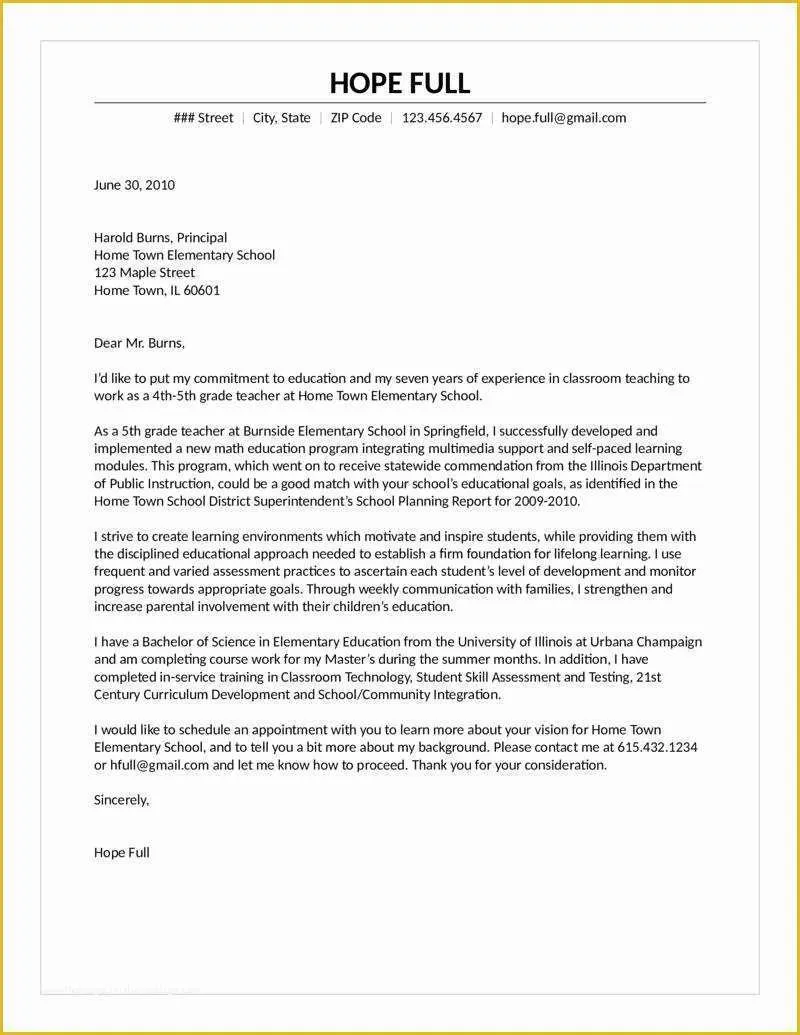
Professional Tone
Maintain a professional tone throughout your cover letter. Use formal language and avoid slang or casual expressions. Be respectful and courteous in your writing. Proofread your letter carefully to ensure that your language is clear, concise, and free of grammatical errors and typos. Your tone should reflect your professionalism and your respect for the school and the hiring committee. If possible, have a trusted colleague or friend review your cover letter for both content and tone, offering another perspective.
Concise Writing
Keep your cover letter concise and focused. Hiring managers often have to review many applications, so aim to make your letter easy to read and digest. Be direct in your statements and avoid unnecessary fluff. Get to the point quickly and highlight your most relevant qualifications and experiences. Use clear language and well-structured paragraphs to convey your message effectively. Aim to keep your cover letter to one page. By being concise, you show that you value the reader’s time and have a good grasp of the key information about yourself.
Proofreading
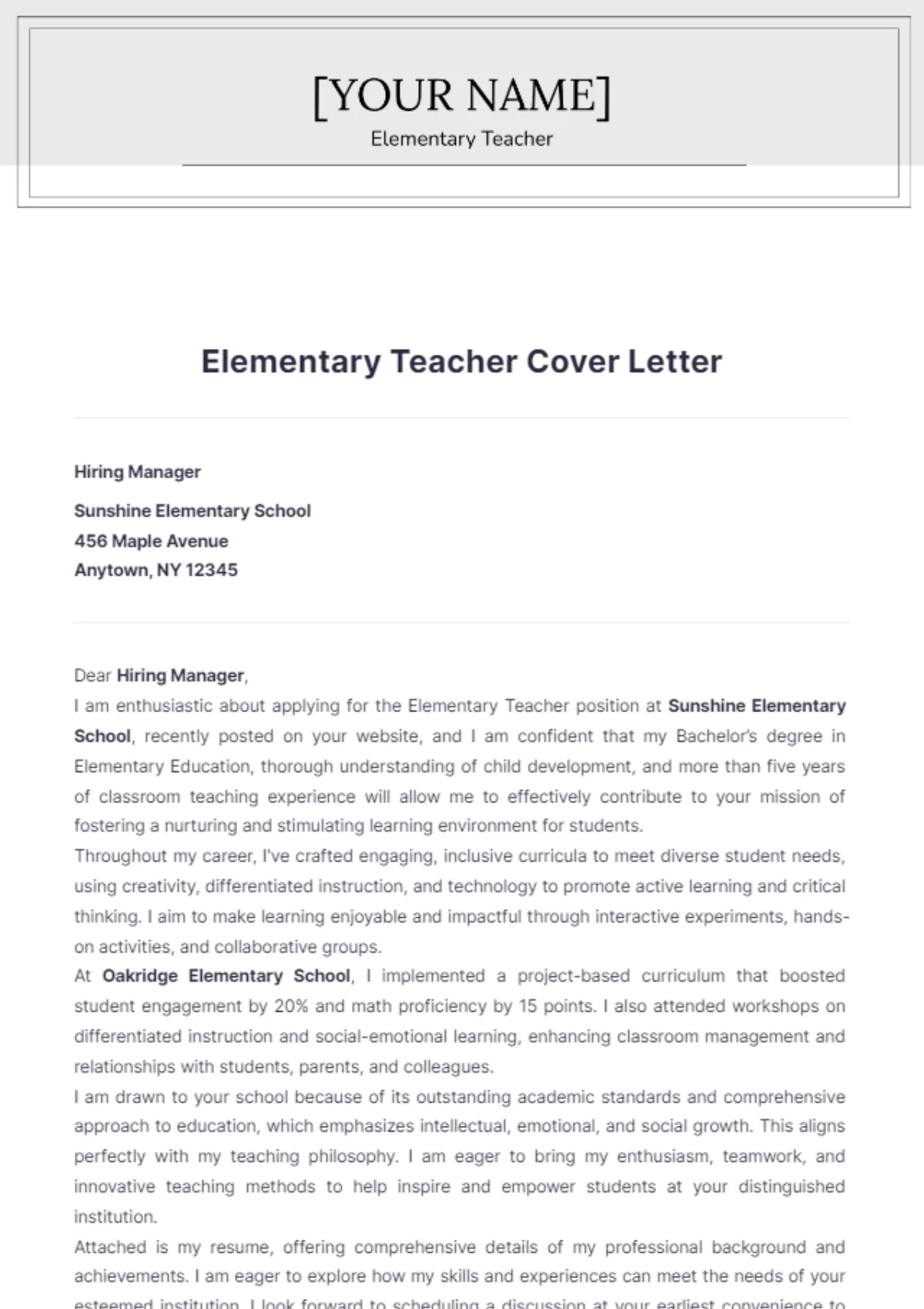
Proofread your cover letter carefully before submitting it. Errors in grammar, spelling, and punctuation can negatively impact your application. Read your letter multiple times, checking for any mistakes. If possible, have someone else proofread it as well, as a fresh pair of eyes can often catch errors you might miss. Ensure all information is accurate. Pay attention to details, such as the school’s name and address, as well as the name of the hiring manager. Proofreading is a crucial step in ensuring that your cover letter is professional and represents you in the best possible light.
Call to Action
Conclude your cover letter with a clear call to action. Express your enthusiasm for the position and your desire to learn more about the opportunity. Mention that you are available for an interview at their earliest convenience. Include your contact information, such as your phone number and email address, to make it easy for the hiring manager to reach you. Thank the reader for their time and consideration. A strong call to action signals your interest and professionalism, increasing your chances of getting an interview.
